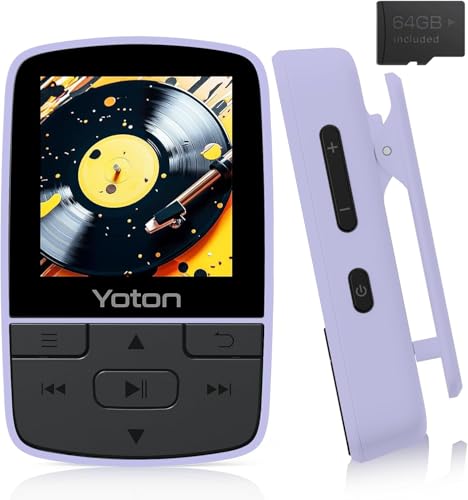When musicians serenade patients in the ICU, they can considerably boost morale and support recovery. Live music reduces stress, lowers blood pressure, and alleviates anxiety, helping patients feel more relaxed and motivated. Familiar melodies evoke positive memories, offering emotional comfort. These musical interventions can influence biological processes, supporting healing and strengthening the immune system. Continued insights reveal how integrating music therapy into ICU care creates an environment conducive to faster, more holistic recovery.
Key Takeaways
- Musicians perform live melodies to create a calming environment and reduce patient stress in ICU settings.
- Serenades evoke positive emotions and memories, boosting patients’ hope and mental well-being.
- Live music helps regulate vital signs like heart rate and blood pressure, supporting physical recovery.
- Musical interactions foster emotional engagement, improving cooperation with medical staff.
- Incorporating serenades into care routines offers a holistic approach, enhancing overall healing and patient comfort.

When patients are confined to intensive care units, a simple melody can make a significant difference in their recovery. You might not realize it, but music therapy has the power to influence the healing process in ways that medication alone cannot achieve. As musicians serenade ICU patients, they’re not just providing entertainment; they’re actively contributing to patient recovery. The soothing sounds can reduce stress, lower blood pressure, and ease anxiety—factors that are essential in a hospital setting where every second counts. You may notice that patients who experience live music often show improved cooperation with medical staff and report feeling more relaxed, which can expedite their overall healing process.
This approach isn’t just about passing the time; it’s a deliberate therapeutic intervention. Music therapy in the ICU setting leverages carefully chosen melodies to stimulate emotional and physiological responses that support recovery. When you see musicians perform bedside, they’re creating an environment that promotes comfort and hope. The familiarity of certain songs can evoke positive memories, offering patients a mental escape from their physical limitations. As a result, patients become more engaged in their recovery journey, showing increased motivation and improved mood. This heightened emotional state can boost immune function and help the body heal faster.
Music therapy fosters hope and engagement, boosting mood, immune function, and healing in ICU patients.
You might be surprised to learn how simple acts, like a gentle tune or a familiar lullaby, influence complex biological processes. The rhythm and melody can help regulate breathing patterns and heart rates, aligning physiological functions in a way that promotes stability. When you observe patients responding positively to live music, it’s clear that the therapeutic benefits extend beyond just mental health. It’s about creating an environment where healing feels possible, even in the most critical moments. That’s why many healthcare facilities are integrating music therapy into their patient care protocols, recognizing its role in accelerating recovery and improving overall well-being.
In essence, these musical interventions serve as a bridge between medical treatment and emotional support. As you watch musicians serenade ICU patients, remember that this isn’t merely entertainment—it’s a essential component of holistic care. When you combine the healing power of music with traditional medicine, you’re offering patients a more extensive path to recovery. The simple act of playing a melody can uplift spirits, reduce pain, and foster resilience, demonstrating that sometimes, the most profound healing happens through the universal language of music.
hospital bedside music therapy device
As an affiliate, we earn on qualifying purchases.
As an affiliate, we earn on qualifying purchases.
Frequently Asked Questions
How Do Hospitals Organize Live Music Performances Regularly?
You might not realize it, but hospitals organize live music performances through careful planning. They coordinate hospital staff collaboration to guarantee smooth execution and manage scheduling logistics efficiently. Staff work together to identify suitable times, secure performers, and prepare spaces, making sure the performances uplift patients’ spirits while fitting into the hospital’s routines. This teamwork creates a calming environment and boosts morale for everyone involved.
What Types of Music Are Most Effective in ICU Settings?
Did you know that soothing music can reduce patients’ stress levels by up to 65%? In ICU settings, classical melodies and ambient sounds are most effective because they promote relaxation and calmness. These gentle tunes help lower heart rates and ease anxiety, creating a peaceful environment for recovery. By choosing calming music, you support patients’ emotional well-being and enhance their healing experience.
Are There Any Risks Associated With Live Music in Hospitals?
When considering live music in hospitals, you should be aware of potential risks like infection control issues and patient privacy concerns. Live performances can inadvertently spread germs if proper hygiene isn’t maintained, and privacy might be compromised if conversations or sensitive moments aren’t managed carefully. To minimize risks, guarantee strict hygiene protocols and respect patient confidentiality, creating a safe, comforting environment without jeopardizing health or privacy.
How Do Patients Typically Respond to Musical Serenades?
You’ll find that patients often respond positively to musical serenades, experiencing enhanced emotional resilience and comfort. The auditory stimulation from live music can lift spirits, reduce anxiety, and create a calming atmosphere. Many patients feel more connected and uplifted, which can aid their recovery. Your presence through music offers emotional support, helping patients feel less isolated and more hopeful during challenging times.
Can This Music Therapy Be Adapted for Other Hospital Wards?
You can definitely adapt music therapy for other hospital wards by creating customized playlists tailored to different patient needs. Virtual concerts offer a flexible way to bring live music to various departments, especially when in-person performances aren’t possible. These approaches help boost morale, reduce stress, and promote recovery, making music therapy a versatile tool across healthcare settings. Your efforts can make a significant difference in patients’ overall well-being.

Yoton MP3 Player with Bluetooth 5.2, 64GB Storage, Mini Size, HiFi Music, with Sports Clip, Independent Volume Control, FM Radio, Includes Headphones (Purple)
【Shuffle & Rich, Hi-Fi Sound Quality】Immerse yourself in crystal-clear audio. Powered by an advanced decoding chip, it faithfully…
As an affiliate, we earn on qualifying purchases.
As an affiliate, we earn on qualifying purchases.
Conclusion
As you listen to these heartfelt melodies, you can feel the gentle touch of hope reaching into the quiet corners of the ICU. The music becomes a tender whisper of comfort, reminding everyone that even in life’s toughest moments, a soft song can bring a flicker of warmth and renewal. In these moments, you’re reminded that sometimes, a simple tune is all it takes to nurture the fragile spark of resilience within us all.

Blackbox Speakeasy Documentary
As an affiliate, we earn on qualifying purchases.
As an affiliate, we earn on qualifying purchases.

Lamborsafe One-Button Music Player for Seniors, Simple Audiobook Player for Elderly & Dementia Patients, MP3 Player Device with 32GB TF Card, Gift for Alzheimer’s, Visually & Mobility-Impaired (Cyan)
Made for Seniors and Dementia. This simple music players for seniors features a large one-touch button, making it…
As an affiliate, we earn on qualifying purchases.
As an affiliate, we earn on qualifying purchases.







